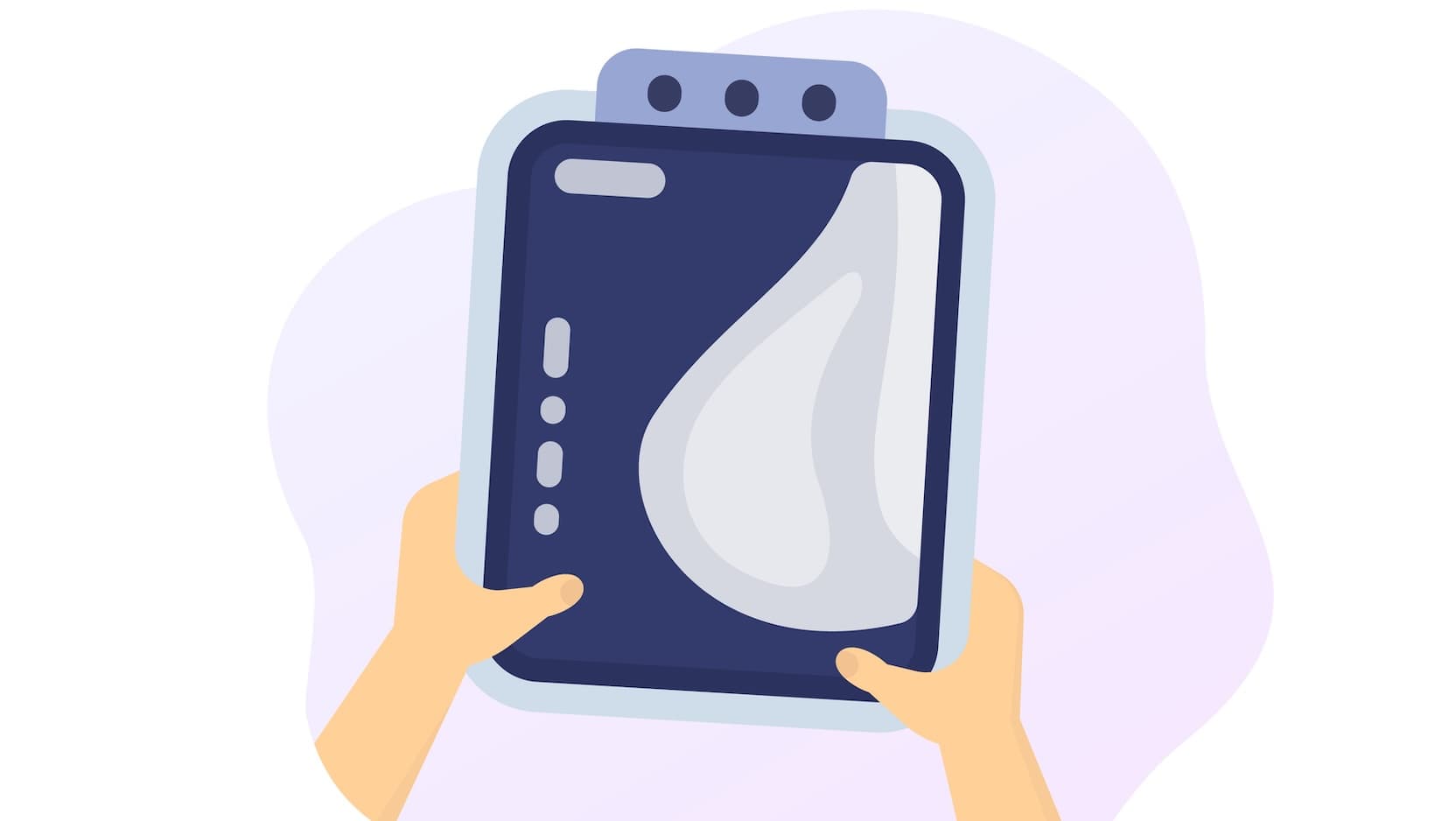What’s new and notable with mammograms, breast cancer screening tech at UChicago Medicine

Mammograms that are three times more effective for women with dense breasts. Tumor detection aided by artificial intelligence (AI). Mammogram machines with curved compression surfaces. A faster and less expensive breast MRI.
They’re among the growing list of tools the University of Chicago Medicine uses to provide the most accurate, comfortable and convenient breast cancer screenings and breast imaging services.
Regardless of which technology is used, women age 40 and older should have yearly mammograms to scan for cancerous tumors. Those at a higher risk for breast cancer may need additional screenings such as a breast ultrasound or an MRI.
Early detection of breast cancer is critical; one out of every eight women gets breast cancer, and more aggressive cancers often are found in younger patients. But if breast cancer is caught early, before it grows and spreads to the lymph nodes and other parts of the body, the five-year survival rate is 99%.
Getting a mammogram takes only a few minutes. UChicago Medicine has 12 locations in the Chicagoland area, including Northwest Indiana, that offer this important screening.
Here’s what’s new and notable in breast cancer detection:
Less painful mammogram compression
Many women fear mammograms because the procedure, though brief, can be uncomfortable; each breast is tightly pressed between two flat panels to scan. UChicago Medicine patients can opt for SmartCurve, a system with a curved, breast-shaped compression surface that reduces pinching and pressure but still provides a high-resolution image.
AI-enabled MRI scans
Two new, state-of-the-art MRI scanners were added this year at UChicago Medicine at Ingalls Memorial in Harvey; another will be installed at UChicago Medicine Calumet City by the end of 2025. (Tinley Park and Flossmoor locations will get them in 2026 and 2027, respectively). The equipment also will be added to UChicago Medicine’s new AbbVie Foundation Cancer Pavilion when it opens in 2027.
Not only are these new devices faster than the old ones, they provide high-tech images aided by AI technology to help detect tumors and reduce false positives. AI uses datasets of medical images to recognize abnormalities and patterns that otherwise might be missed.
“The images are amazing and provide valuable prognostic information," said Missie McDonald, Ingalls' Radiology Manager. "It also reduces the time a patient is on the scanner.”
Contrast-enhanced mammograms
A large study published in May 2025 found that contrast-enhanced mammograms are superior screening tools for patients with dense breasts. While many breast screening centers don't offer this type of mammogram, they're available at UChicago Medicine Tinley Park.
During a contrast-enhanced mammogram, a patient receives a dye injection that helps make problematic areas in the breast more visible on the scan. It can detect up to three times more invasive cancer tumors than a traditional mammogram, including smaller tumors, the study found.
Contrast-enhanced mammograms are also good for patients who might need an MRI in addition to a mammogram, but can’t tolerate being in an enclosed MRI machine. They're also helpful for patients with anxiety, pacemakers, implants or obesity.
Ultrafast abbreviated MRI
Ultrafast abbreviated MRI is a revolutionary technology developed by UChicago Medicine’s Gregory Karczmar’s, PhD research team which includes radiologists Kirti Kulkarni, MD, and Hiroyuki Abe, MD, PhD.
The system scans the breast every three seconds for about 10 minutes, completing the MRI in a fraction of the time (and at a lower cost) than a conventional MRI. It provides detailed information on blood flow and capillary permeability, which are important markers for cancer.
The clear images allow physicians to detect small cancers at an earlier, more curable stage – a particularly helpful screening tool for high-risk patients, including women with dense breasts.
The scanner is proving to be a reliable screening tool for high-risk patients, including women with dense breasts.
Quicker, more comfortable biopsies
When a mammogram or MRI detects a tumor, UChicago Medicine has a fast, unintimidating system for breast biopsies. Hologic’s AFFIRM biopsy system allows patients to sit upright in a chair as a high-tech machine is centered over the breast, calculating the precise spot where the needle needs to be inserted.
AFFIRM cuts test times in half, to about 15 to 30 minutes, making it easier and more comfortable for patients.
Self-scheduling mammograms
UChicago Medicine offers convenient online mammogram scheduling at several locations throughout the region. Choose a day, time and location that works for you.

Breast Cancer Care
Our team represents expertise across the spectrum of breast cancer care: breast imaging, breast surgery, medical and radiation oncology, plastic and reconstructive surgery, lymphedema treatment, clinical genetics, pathology and nursing. Our comprehensive care approach optimizes chances of survival and quality of life.
Learn more about UChicago Medicine breast cancer care.Convenient Locations for Breast Cancer Screening Mammography
Breast Cancer Screening - Annual vs Personalized

